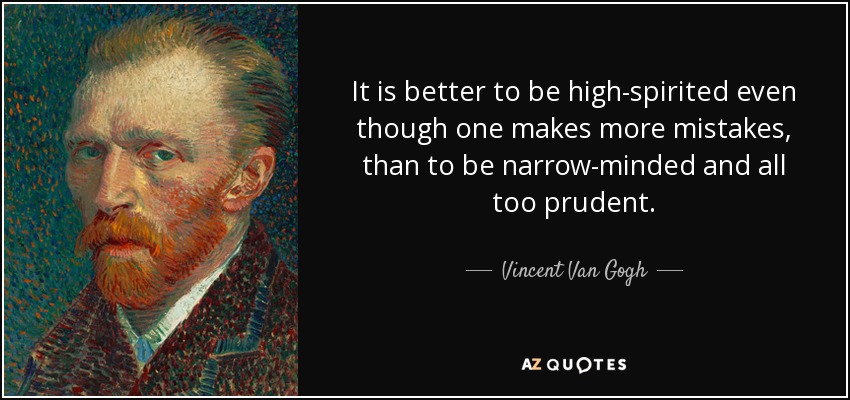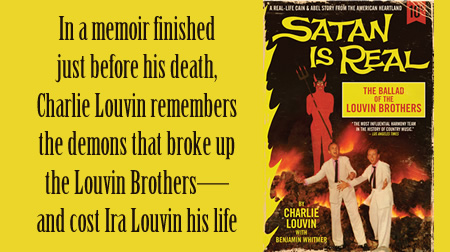
* * * *
Earlier this week – a Tuesday morning heading into Fayetteville for some shopping – I heard a song, “Cash on the Barrelhead.” The song, courtesy of my Sirius bluegrass station,* was by the Louvin Brothers, and I knew them from previous experience. That “brotherly” association brought back some bad memories. As it turns out, I’m way more familiar with another song the Louvin Brothers did, “That word broad-minded is spelled s-i-n.”

Which means that – to the Louvin Brothers – any good Christian has to be narrow minded. But that to me is perversion of the Gospel…
But anyway, the Brothers recorded their “s-i-n” song in 1952. The lyrics read in part: “I read in my Bible, they shall not enter in. For Jesus will answer, Depart, I never knew you.” Which is a “Christian sentiment” that I’ve always found incongruous, if not ironic. Like when the song’s refrain repeats, over and over, “That word broadminded is spelled s-i-n.”
But just to clear things up, that “depart, I never knew you” quote came from Matthew 7:23. And Matthew Chapter 7 starts off with Jesus saying: “Do not judge, or you too will be judged. For in the same way you judge others, you will be judged, and with the measure you use, it will be measured to you.” And Chapter 7 goes on to talk about the narrow and the wide gates, about true and false prophets, and about true and false disciples.
In turn, the sentiment in the “s-i-n” song could be one big reason why – for the first time since the 1930s – fewer than half of Americans belong to a church, mosque or synagogue. That is, because of false disciples either perverting the Gospel or creating God in their own image, not the the other way around. And as far as that “wide gate” goes, I’m thinking the people who enter that wide gate are the ones who turn way too conservative in their theology, especially as they get older. (Which is such an easy trap to fall into.) It’s much more difficult to enter the narrow gate by remaining – even in old age – independent and open-minded, like Moses and Jesus and Paul. (“Oh my!” To which I could add, “Me too!”)
Then there’s John 6:37, where Jesus said, “whoever comes to me I will never cast out.” And there’s Romans 10:9, “If you confess with your mouth, ‘Jesus is Lord,’ and believe in your heart that God raised him from the dead, you will be saved.” And finally, for your “secular” consideration, there’s 2d Timothy, Chapter 2, which tells of “dealing with false teachers.”
[T]he Lord’s servant must not be quarrelsome but kind to everyone, able to teach, patiently enduring evil, correcting his opponents with gentleness. God may perhaps grant them repentance leading to a knowledge of the truth, and they may come to their senses and escape from the snare of the devil…
That’s from 2d Timothy, Chapter 2, verses 24-26. And speaking of devil-snares, Ira Louvin certainly had demons of his own to deal with. (But then, who am I to “cast the first stone?”)
* * * *
To get back on track, Charlie and Ira – the “Louvins” – were born Loudermilk brothers. “After becoming regulars at the Grand Ole Opry and scoring a string of hit singles in the late 1950s,” those brothers broke up as a duo in 1963. Mainly because Charlie grew tired of “Ira’s addictions and reckless behavior.” Or see the Wikipedia article on Ira:
Ira was notorious for his drinking and short temper. He married four times, his third wife having shot him multiple times in the chest and hand after he allegedly beat her. He died on June 20, 1965 when a drunken driver struck his car in Williamsburg, Missouri. At the time, a warrant for Louvin’s arrest had been issued on a DUI charge.
I first wrote about these brothers in a companion blog, listed in the notes. The gist of that post – from 2014 – was that there was a vast difference between Ira Louvin’s “public and private persona.” (“Do as I say, not as I do.*”) I noted that that difference “could be spelled ‘h-y-p-o-c-r-i-t-e,’” rather than “s-i-n.” (Then added, “but that would be a bit too snippy for this Blog.”)
I ended up concluding, “Suffice it to say, Ira was merely human, like the rest of us.”
But then – being broad-minded rather than narrow-minded – I recently changed my tune a bit. I ended up feeling kind of sorry for ol’ Ira, mainly because of the web article, The Bloody Ballad of Charlie and Ira Louvin | PopMatters. It’s a review of the book Satan Is Real: The Ballad of the Louvin Brothers, by Charlie Louvin, in association with Benjamin Whitmer.
As children … Charlie and Ira experienced their share of Hell on Earth. Their father, himself the son of a cruel drunk, turned his violence on his sons. Ira, being the oldest son, received the worst of beatings that used feet, fists, switches, pieces of furniture, logs — anything within reach if their father was angry enough — to put him within spitting distance of death’s door at least once.
Then there was the story of the “mutt puppies that resulted from the boys sneaking a bulldog in to breed with a prized bloodhound.” The cruel-drunk father told Charlie to “put them in a sack and brain them against a fence post to kill them.”
Which led to another dark note, of Louvin-Whitmer concluding that “the alcoholism and self-destructiveness that defines Ira seems inevitable, given his grandfather’s drunkenness, his father’s cruelty, and Ira’s mix of insecurity and rebellion.” Which led to another conclusion, that their music – their musical careers – ended up being the Louvin Brothers’ “only ticket out of a life of back-breaking work and abuse.”
Which may be why their music turned out to be so popular; why that music struck a chord with so many people. As the “Satan is real” book review noted, the story of the Louvin Brothers was one of “a mid-century Southern gothic Cain and Abel,” who turned out to be “one of the greatest country duos of all time.” One newspaper called them “the most influential harmony team in the history of country music.” On the other hand, Emmylou Harris said, more succinctly, “there was something scary and washed in the blood about the sound of the Louvin Brothers.”
In short, theirs is a “raw and powerful story of the [country-music] duo that everyone from Dolly Parton to Gram Parsons described as their favorites.” Which reminds me…
A couple Christmas seasons ago, before Covid, I went to a concert at Saint Mark’s UMC – Atlanta, featuring the Trey Clegg Singers. They had a guest singer, whose name I can’t remember. But his performance reminded me of William Warfield singing “Old Man River” at New York City’s Lincoln Center in 1966. (I was 15 at the time.) Each time I remember thinking, “There was a lot of pain that went into making that voice so beautiful.” And so it was with the Louvins.
In the meantime, we all have our own demons to deal with…
* * * *

* * * *
The upper image is courtesy of Making God In Our Image – Image Results. And by the way, the quote is attributed to other people besides Mark Twain. Another note. The ggogle search “making God in our image” got me close to six million results. Also, much of this post was gleaned from a May 2014 post on a companion blog, On broadminded, spelled “s-i-n.” For more detail on the song itself, see Cash on the Barrelhead and The Louvin Brothers – Wikipedia.
Re: “Cash … barrelhead.” That was “on the way into Fayetteville,” Georgia. And it was the Sirius XM bluegrass station.
Re: “Broadminded.” See Louvin Brothers – Broadminded … SongMeanings.
The Van Gogh image is courtesy of Narrow Minded Image – Image Results. In case you can’t see it, the text reads, “It is better to be high-spirited even though one makes more mistakes, than to be narrow-minded and all too prudent.” It came with an article from AZ Quotes, with other Narrow-Minded quotes.
Re: Decrease in church membership. See for example Gallup: Fewer than Half of Americans Belong to a Church.
Re: Whose image? See Genesis 1:27 So God created man in His own image. (Not the other way around.)
Re: Moses and Jesus and Paul. (“Oh my!”) See Lions and tigers and bears oh my – Idioms by The Free Dictionary.
Re: “Do as I say,” etc. See also Matthew 23:3 “So practice and observe everything they tell you,” on the scribes and Pharisees of Jesus’ time, with the note, “they don’t practice what they preach.”
The St. Mark’s in question is at 781 Peachtree Street NE, Atlanta. (Around the corner from the “Sivas Hookah Lounge.”)
Re: 1966 revival of Showboat. See SHOWBOAT LINCOLN CENTER CAST – COOK,BARBARA – 090266118229 | HPB.
The lower image is courtesy of Louvin Brothers Broadminded S-i-n Images – Image Results.
* * * *

 I noted that even back then – early on in the pandemic – I managed to keep busy. For one example, I did things like watch a lot of lectures from
I noted that even back then – early on in the pandemic – I managed to keep busy. For one example, I did things like watch a lot of lectures from  In turn, from the
In turn, from the